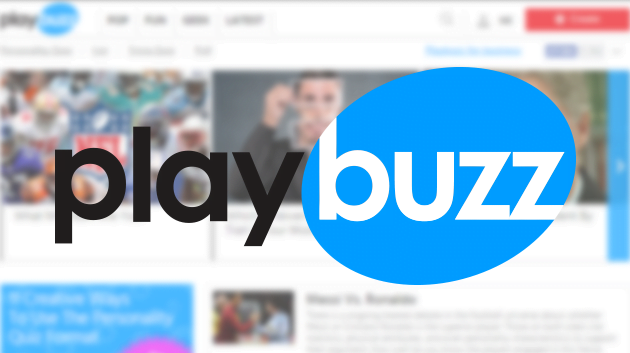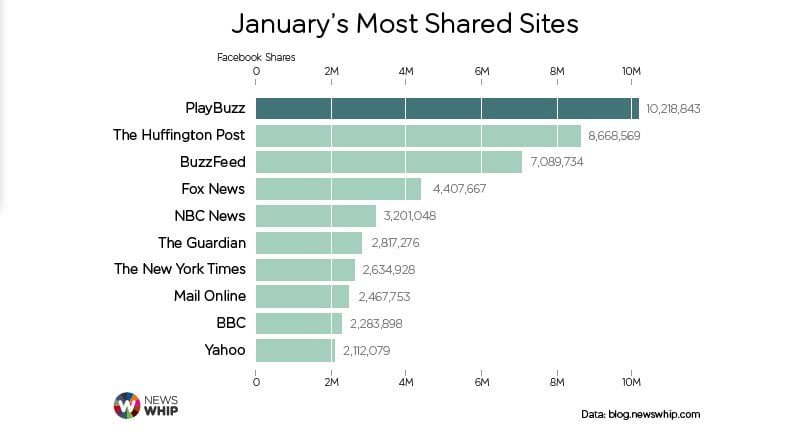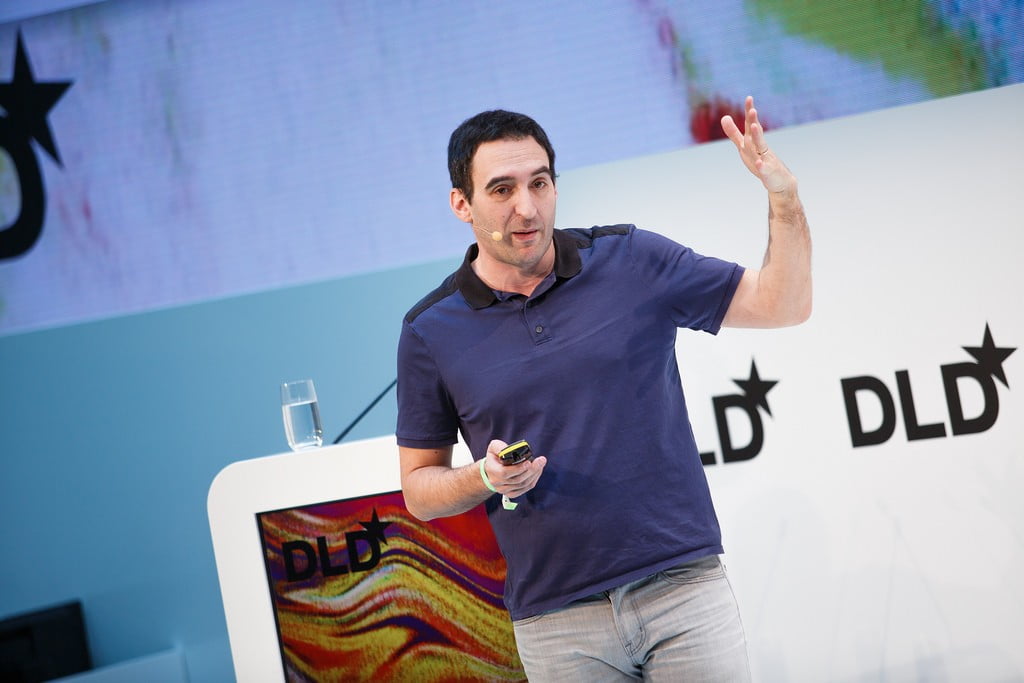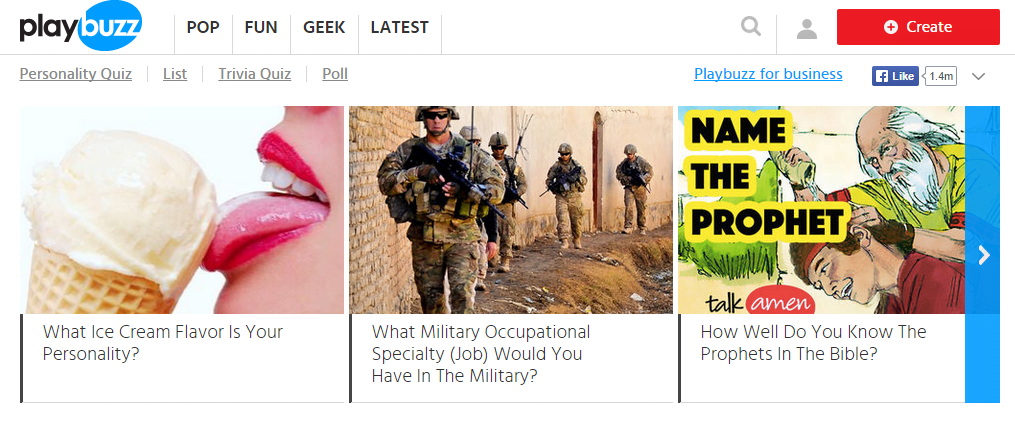Constant distraction online has become inevitable as viral quizzes, humorous lists, trivia, polls, and other time-killing items overwhelm Facebook feeds around the world. They may ask you to find out “What is it about you that turns people on most?” or “Which 80s Hair-Metal Band Should You Be In?”.
As the most shared site on Facebook, topping the Huffington Post and surpassing the likes of BuzzFeed and UpWorthy, PlayBuzz is certainly stirring up a “buzz”. With well over well over 80 million unique visitors on the site in March alone and 58 million unique views within the first three months of launching, it seems that the site has cracked the code for viral content. So how did the site manage to cause such a stir so quickly? Shaul Olmert, founder of PlayBuzz (and son of former Israeli Prime Minister Ehud Olmert) tells NoCamels how the idea of PlayBuzz came about.
The PlayBuzz platform provides publishers, bloggers, and individuals with a free way to enhance their brand or business by creating more engagement and virality. Using “ready-made” playful content templates designed by the PlayBuzz team, individuals can develop and connect with their audience through game-like experiences.
“I’ve always been focused on gaming in some aspect throughout my career,“ Olmert explains. “At Nickelodeon, I worked with a site called AddictingGames where we turned news stories into viral games like ‘Naughty Governor’ or ‘Hero on the Hudson’. Through experiences like that, I learned how gaming can really be applied to any piece of content and people will start to interact with it instead of being passive consumers.”
PlayBuzz relies on users to generate content
PlayBuzz is an open network for the creation and free distribution of playful content. Visitors to the site are able to create their very own lists, polls, and quizzes using the toolset provided. They can then share or embed the resulting content on to various websites and social media networks, namely Facebook. Often compared to the popular content website BuzzFeed (and similar in its name), PlayBuzz is unique because it relies on users and independent publishers to generate content, while most of BuzzFeed’s content, is generated in-house.
SEE ALSO: Study Decodes Viral Online Content, Finds ‘Memes’ Act Just Like Genes
“BuzzFeed established themselves as a leading media company by sticking to their own editorial voice,” says Olmert. “Our platform is content-agnostic, and can be used by various publishers and brands to create content on any topic or in any style. Our focus is on the toolset, theirs is on content production.”
Founded in 2012 by Olmert and Tom Pachys and launched just one year later, the startup has already raised nearly $19.8 million dollars in funding from key players like Carmel Ventures, Saban Capital Group, The Time, Rutledge and Oded Vardi.
Sign up for our free weekly newsletter
SubscribeAs the company continues to develop, its current focus remains exclusively on growth and distribution, not monetization. And, thus far, ad-supported content on PlayBuzz has been able to keep the company profitable. The five thousands publishers who use the network, like MTV, AOL, Yahoo and Market Watch, are able to gain further traction for their content, and to up their brand awareness. According to Olmert, “Their success is our pride.”
Currently, PlayBuzz remains a nimble company comprised of 60 employees and growing, but the publishing toolsets that they are building are reaching millions of people across the globe. “As we continue to create more game-like experiences for our publishers, and bring on more partners, we will likely need to expand our development, marketing and business development teams,” says Olmert. For now, “We will continue to hone these tools and the ready-made gaming experiences that we’re providing for publishers, and as the market evolves, we’ll iterate on these.”
The king of Facebook shares, but not for long
While the future looks bright for PlayBuzz, much of its success is dependent upon social media giant, Facebook, which continues its process of eliminating some of the promotional material littering our newsfeeds. One Facebook user survey revealed that roughly 500,000 users report that promotional posts and low-quality ads mired their experience. The news feed algorithm designed by Facebook aims to show people what they want to see, and while some welcome being bombarded with brain-numbing quizzes throughout the day, others find this kind of content to be low-grade and distracting. Even though most pages were not heavily affected by the change in Facebook policy, one has to wonder whether PlayBuzz has felt the impact. While the content on the site is manually curated from the hundreds of content items created by the PlayBuzz community, it’s still a wonder that quizzes such as “What is your Mermaid Personality?” or “Which Hollywood Chris Would You Date?” wind up on the site’s front page.
SEE ALSO: Using DNA Nanotechnology, Israeli Scientists Develop The Future Of Flexible Display Screens
As technology continues to evolve, and trends continue to shift, Olmert believes that the site will be able to stay relevant and that new playful content will continue to emerge. “We continuously focus on developing new content formats for publishers to use in order to drive users’ interest and engagement in new ways,” he explains. “We hope to become a go-to resource for all publishers that are looking for deeper user engagement and social experiences.” However, Playbuzz will need to keep its competitive edge and leverage its accessibility, potentially beyond social networks, to draw in more users and create a lasting “buzz” on the Internet.
Photos: PlayBuzz/ DLD
Related posts

Editors’ & Readers’ Choice: 10 Favorite NoCamels Articles

Forward Facing: What Does The Future Hold For Israeli High-Tech?

Impact Innovation: Israeli Startups That Could Shape Our Future







Facebook comments